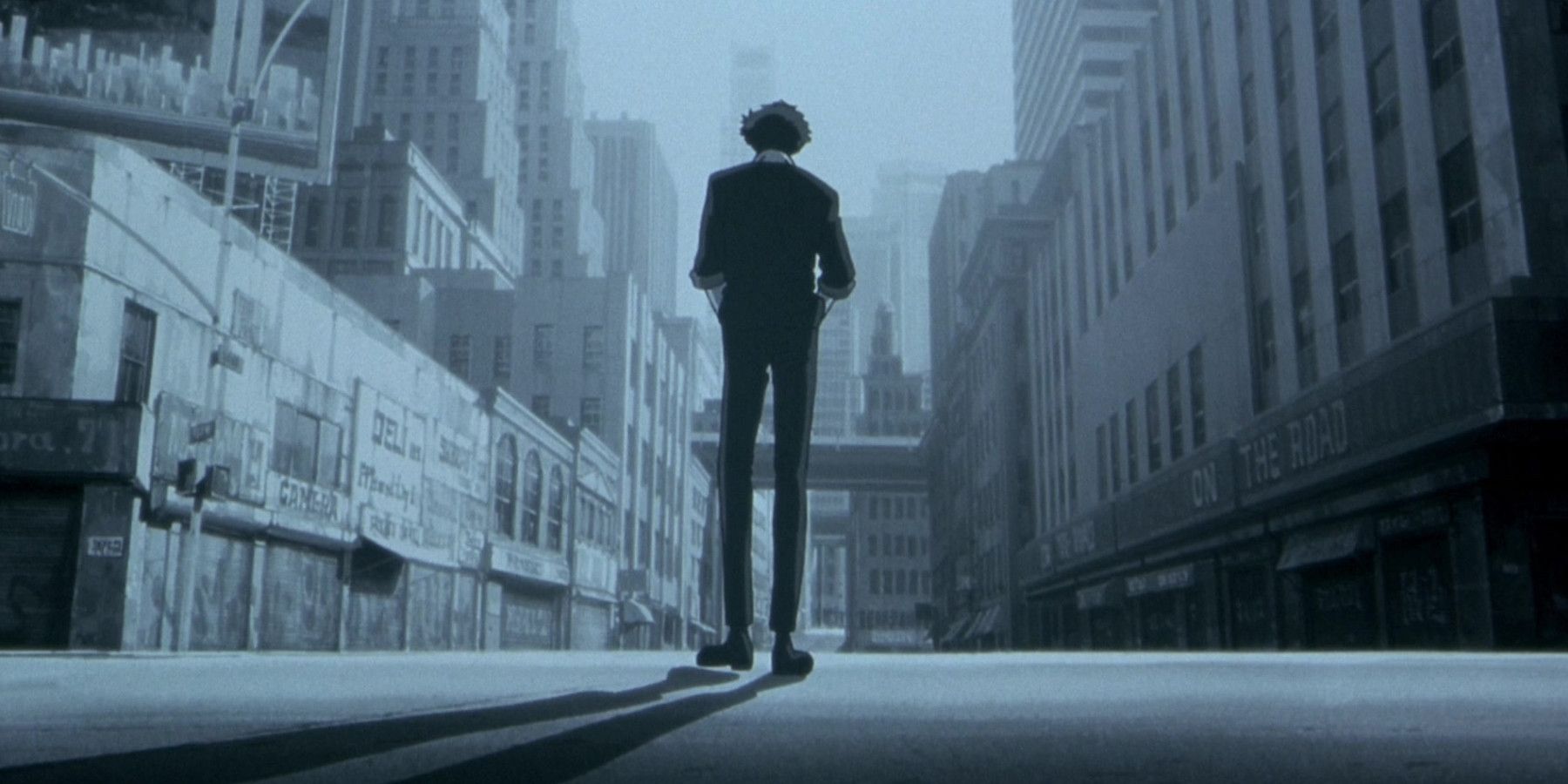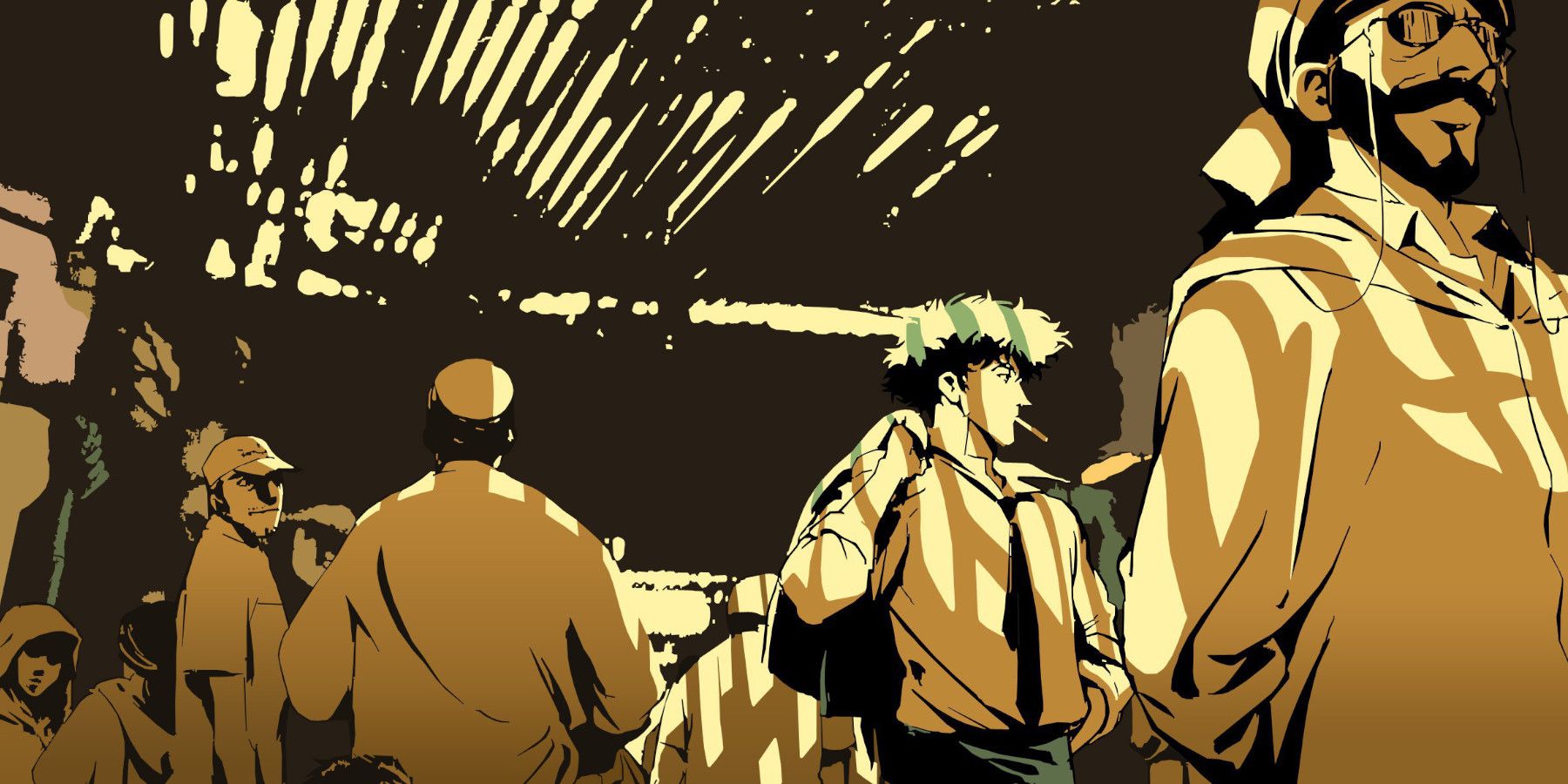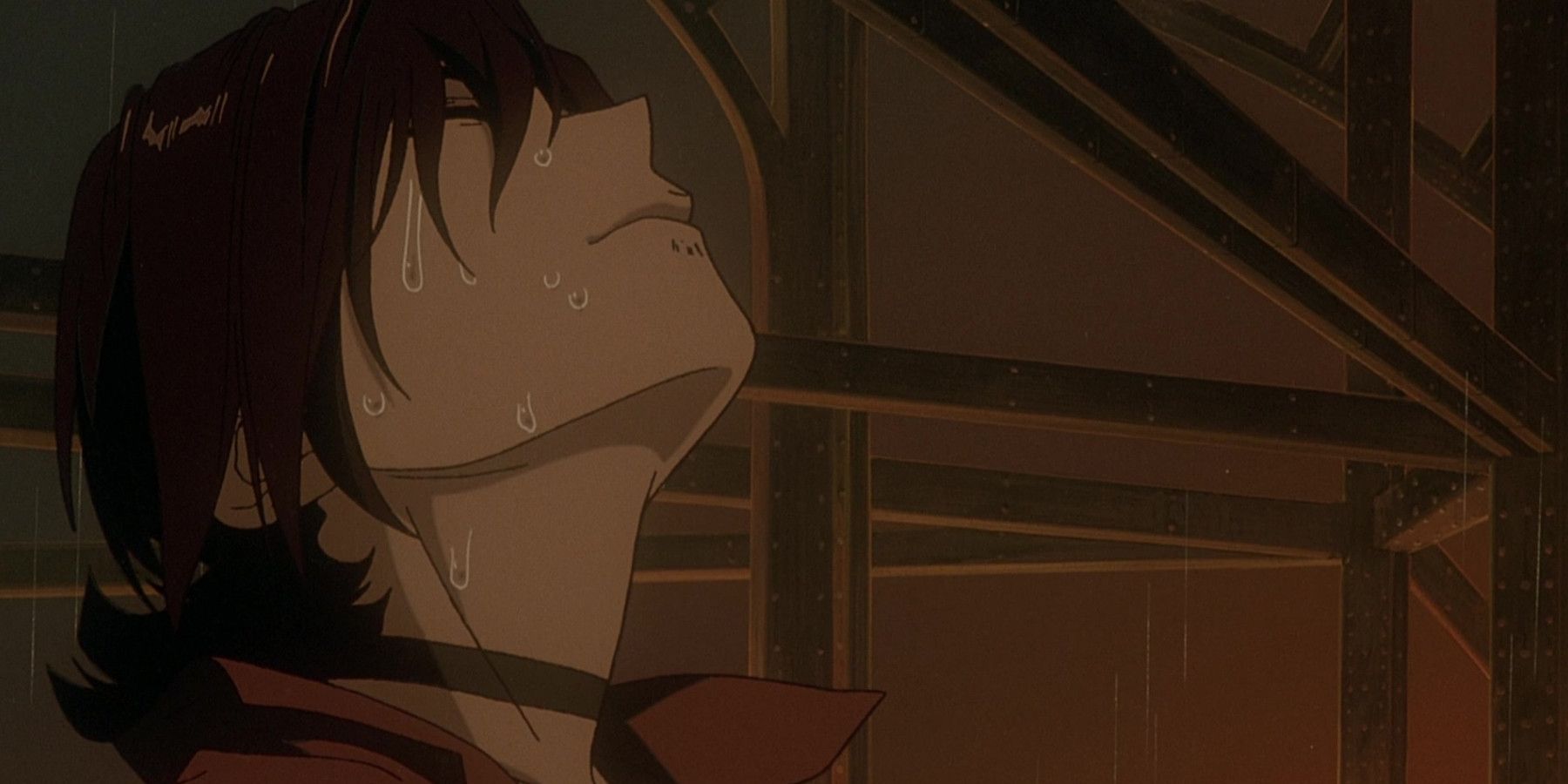Cowboy Bebop is appropriately beloved for its eclectic mixture of sci-fi, western, noir, and jazz influences, all mixed up into a fine stew and served piping hot. However, unless the movie is lumped into the mix, there is no complete discussion of how cool this series is because Cowboy Bebop: Knockin' on Heaven's Door might be the best part of the whole meal.
It was 2001 and by this time, Sunrise members Masahiko Minami, Hiroshi Osaka, and Toshihiro Kawamoto had already left Cowboy Bebop and Gundam's studio, Sunrise to form Bones. But in a special turn of events, Bones took the reins on a film adaptation of Cowboy Bebop to give the galaxy's best (worst) bounty hunters one more job. It may seem ridiculous to cite the movie as the best part of the series given that it had to follow up such an emotional and narratively perfect conclusion, but the movie shouldn't be underestimated. While the film might not have the time to weave the same web the series had to suck in viewers, it stands as a tribute to the things that made the series so great, with an original story just under two hours long.
Extra Session
The Bebop movie's first great idea is that it doesn't attempt to continue on from the ending of the series, which felt so final that continuing it would risk ruining it. Since Bebop's story was so episodic, it was easy for the film to nestle itself between episodes 22 and 23, according to the now archived website for the film.
The film centers around the Bebop crew hunting down Vincent Volaju, a terrorist plotting to unleash a chemical weapon on Mars. On Vincent's trail, Spike meets the fiery Elektra, an investigator with a connection to Vincent. The whole crew gets caught up in a conspiracy involving the military and this strange bioweapon.
Starting with a "Bang!"
The introduction to the movie alone is one of the best opening set pieces to any action movie of its time and in the time since. The characterizations, the comedy, the cinematography, and the action all are at their peak. Someone who has never watched Bebop could watch this scene and immediately know who these characters are.
The original voice actors were all brought back by Sony for the film's release, including Steve Blum, Beau Billingslea, Wendee Lee, and Melissa Fahn. Jennifer Hale also joins the cast as Elektra, playing off of Spike almost as well as Mary Elizabeth McGlynn. It's hard to say that their performances are better considering the original show's acting was already sublime, but it's still top-tier, to say the least.
After the opening scene, the title card sequence itself is a jam that could seriously rival even the show's opening, just by virtue of its understated splendor. By the time the opening is done, the audience is locked in for the long haul and the story has an incredible flow that doesn't feel like it's trying too hard to offer fan service.
Bebop's Greatest Hits
The best thing about Bebop is that it doesn't feel too different from a superb episode of the TV show. It's just longer, has a larger budget, and differentiates itself visually from the series enough to make it clear that this is a capital F "Film." The already beautiful designs by Toshihiro Kawamoto are given this subtle but meaningful glow-up on the big screen and the color direction gives the movie a very "shot on film" look.
A lot of this style could be contributed to this film being produced back when animation cells were still the dominant method, but slightly darker tones give this film a more pronounced air of maturity. It takes itself seriously but never shies from some banter or levity between the characters and least of all from Ed's shenanigans.
The Bebop crew aren't precisely a well-functioning team, and they're barely successful bounty hunters. They work well because they are equally lost and broken people who found each other and bicker like a dysfunctional family that, at the end of the day, is there for each other. Each character goes off on their own investigation until they all converge at the climax.
It's abnormal for team dynamic film perhaps, but it couldn't be more Bebop, and their individual journeys produce some of the best moments in the franchise. Spike's fight with Elektra and the subsequent escape, the entire sequence on the train, and the final fight on the tower are just a few of the major moments that not only elevate the film but rank among the best in the series.
And sure, a lot of them are revolved around Spike, but the rest of the Bebop crew is just as charismatic as always. Spike just gets the best fights because he's the Bruce Lee of the series and the antagonist, Vincent, is arguably an even better rival than Vicious was in the series. Rest assured, Faye and Ed have plenty of their own shenanigans.
The only one dealt the short end of the stick is arguably Jet, who mostly stays on the ship or gets aggravated at everyone going off on their own. However, it's keeping in character that Jet tries to be the most reasonable one in the group, keeping Spike honest about how dangerous the mess they're in is. And again, when the chips are in place, every character has a role to play at the end.
Are You Living In The Real World?
The Bebop movie is about dreams; a villain who's trying to destroy everything because he's convinced life is a dream and a cowboy trying to stop him who constantly dreams of the past and the future. Being a side-story placed shortly before the end of the series, there isn't much threat to the characters, but that isn't the point, and it was never the point of Bebop's best episodes either.
A lot of Bebop's best stories are about the characters the audience meets once and never again. Vincent and Elektra, two people with a shared past, clashing again through their interactions with the Bebop crew, are everything that is good about Bebop's storytelling. Their relationship and its parallels to Spike are what makes the film feel so powerful on every rewatch.
The film might not hit the audience in the gut like the show did when showing Faye or Jet's past or Ed's sudden departure or Spike's final fight with Vicious, but it has just as big a heart as those episodes. Maybe the story about government conspiracy and subtext about terrorism isn't the strongest part of the story, but it adds texture to the show's own lore which constantly is used to deepen these characters.
Cowboy Bebop: Knockin' on Heaven's Door is one of Shinichiro Watanabe's grandest gestures and definitely the prettiest gift to fans of the series. It's short, smart, witty, fun, poignant, and immensely rewatchable thanks to great pacing. All in all, it's probably the best part of the Bebop series and - to be rather bold - definitely one of the best anime films of all time.
Source: Cowboy Bebop - Knockin' on Heaven's Door /Archive.org



